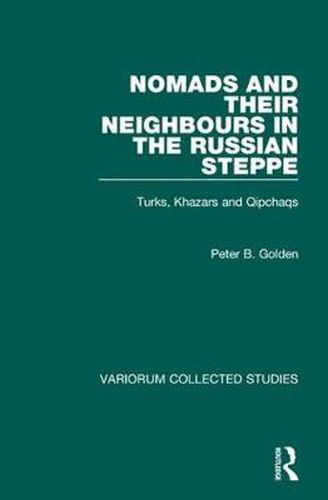Readings Newsletter
Become a Readings Member to make your shopping experience even easier.
Sign in or sign up for free!
You’re not far away from qualifying for FREE standard shipping within Australia
You’ve qualified for FREE standard shipping within Australia
The cart is loading…






The western steppelands of Central Eurasia, stretching from the Danube, through the modern Ukraine and southern Russia, to the Caspian, have historically been the meeting ground of Inner Asian pastoral nomads and the agrarian societies of Eastern Europe and the Caucasus. This volume deals, firstly, with the interaction of the nomads with their sedentary neighbours - the Kievan Rus’ state and the mediaeval polities of Transcaucasia, Georgia in particular - in the period from the 6th century to the advent of the Mongols. Secondly, it looks at questions of nomadic ethnogenesis (Oghuz, Hungarian, Qipchaq) at the evolution of nomadic political traditions and the heritage of the Turk empire, and at aspects of indigenous nomadic religious traditions together with the impact of foreign religions on the nomads - notably the conversion of the Khazars to Judaism. A number of articles focus on the Qipchaqs, a powerful confederation of complex Inner Asian origins that played a crucial role in the history of Christian Eastern Europe and Transcaucasia and the Muslim world between the 11th and 13th centuries.
$9.00 standard shipping within Australia
FREE standard shipping within Australia for orders over $100.00
Express & International shipping calculated at checkout
The western steppelands of Central Eurasia, stretching from the Danube, through the modern Ukraine and southern Russia, to the Caspian, have historically been the meeting ground of Inner Asian pastoral nomads and the agrarian societies of Eastern Europe and the Caucasus. This volume deals, firstly, with the interaction of the nomads with their sedentary neighbours - the Kievan Rus’ state and the mediaeval polities of Transcaucasia, Georgia in particular - in the period from the 6th century to the advent of the Mongols. Secondly, it looks at questions of nomadic ethnogenesis (Oghuz, Hungarian, Qipchaq) at the evolution of nomadic political traditions and the heritage of the Turk empire, and at aspects of indigenous nomadic religious traditions together with the impact of foreign religions on the nomads - notably the conversion of the Khazars to Judaism. A number of articles focus on the Qipchaqs, a powerful confederation of complex Inner Asian origins that played a crucial role in the history of Christian Eastern Europe and Transcaucasia and the Muslim world between the 11th and 13th centuries.